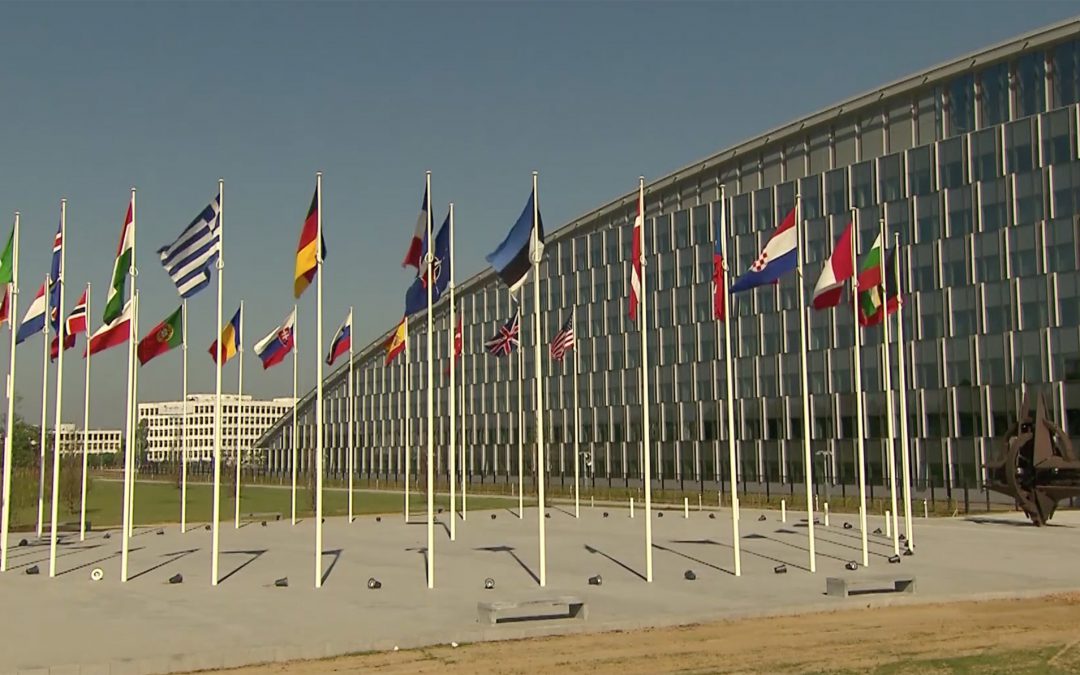WASHINGTON – The North Atlantic Treaty Organization (NATO) allies for the third consecutive year boosted their defense spending amid increased concerns about Russia aggression, according to a new report.
Defense spending among European allies and Canada increased by 4.87 percent from 2016 to 2017, marking the third consecutive year of growth since 2014, according to NATO’s secretary general’s 2017 annual report.
In 2014, NATO allies signed a Defense Investment Pledge to end cuts to defense budgets and to increase defense spending to two percent of their gross domestic product (GDP) by 2024.
The United States led with defense expenditures of 3.57 percent of GDP, up slightly from 3.56 percent the previous year, while European countries increased their spending on defense to an average 1.4 perfect of GDP from 1.44 percent.
President Trump has been highly critical of NATO members’ past efforts to share in regional military costs and has sought to pressure allies to increase their effort.
While eight countries are expected to meet the guideline in 2018, the other countries on their way to the 2 percent mark are significantly increasing their spending.
“Germany increased defense spending last year (2017) by around six percent in real terms, and that’s a really big increase and it adds to the European defense spending in a significant way,” said NATO secretary general Jens Stoltenberg.
In addition to the two percent spending commitment, they are also making progress on their agreement to spend at least 20 percent of annual defense expenditure on major new equipment by 2024.
According to the report, 26 allies spent more on major equipment in 2017 than they did in 2016, and the number of allies meeting the 20 percent guideline rose to 12 in 2017.
This continuous increase in defense spending, especially among the Baltic states of Latvia, Estonia and Lithuania, can be attributed to the increased perceived threat of aggression from Russia, according to Jorge Benitez, assistant professor at the Marine Corps University.
However, Benitez added that President Donald Trump’s criticism of NATO allies for not fulfilling their financial commitment has been counterproductive in some instances.
“The president is speaking in a way that’s not helpful and they’re responding in a way that’s not helpful or effective,” he said.
Trump’s newly signed 25 and 10 percent tariffs on steel and aluminum imports respectively, might prompt NATO members to increase their defense budget even more in upcoming years.
The administration is considering exempting NATO members from the tariffs on the condition that they increase their defense budget ideally to the two percent guideline.
“The president is very clear if we’re in NATO he wants to make sure that NATO gets more money so that NATO can protect all of us and fulfill its goal,” treasury secretary Steve Mnuchin, said in an interview with CNBC.
Benitez said connecting defense spending of allies to tariff exemptions is not a good idea.
“This is heavy-handed coercion and not an effective way to increase cooperation from our valuable allies in NATO,” said Benitez.
While there are concerns that merging these issues might be ineffective, NATO maintains that economic policies would not deter them from their goal.
“There are some differences when it comes to trade, but at the same time I am absolutely certain that NATO will stand …around our core task, to defend and protect each other,” said Stoltenberg.

